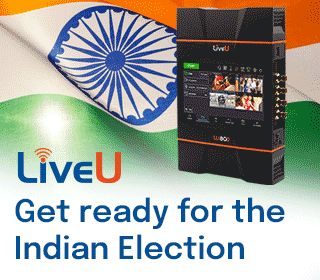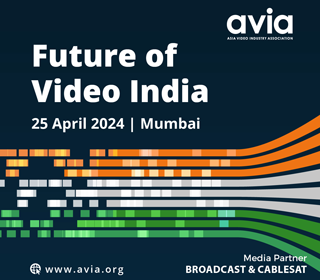Headlines Of The Day
MIB declines to regulate tariffs for broadcast apps
The information and broadcasting (I&B) ministry has informed the Telecom Regulatory Authority of India (TRAI) that there’s no need for any kind of tariff regulation for broadcast apps, which include OTTs like Netflix and Amazon Prime Video as well as live TV channels when broadcast on OTTs.
This means that broadcasters like Sony, Zee, Star etc can continue to telecast their live TV channels for free on their OTT apps. Even telecom operators can broadcast such live TV channels on their apps for free if they choose to.
This also means that TRAI’s upcoming consultation paper on regulation of OTTs will only focus on communication-related OTTs like WhatsApp, Signal, Telegram etc.
Currently, telecom operators, DTH and Cable TV operators are under tariff regulation but their counterparts in the OTT space are not. TRAI is the regulator for both telecom and broadcasting sector, but it has no powers to regulate OTTs.
Sources said that since the department of telecommunications (DoT) had sent a reference to TRAI for examining the scope for regulating communication-related OTT apps, the regulator asked the I&B ministry if it also wants to bring entertainment-related OTTs to be brought under the purview of any kind of tariff regulation. The I&B ministry replied in the negative.
With the I&B ministry declining tariff regulation for entertainment-related OTTs, TRAI will also not be able to act on a complaint by Bharti Airtel that Reliance Jio’s recent bundled fixed broadband plans offering 400-500 live TV channels are predatory. While Bharti has charged Jio for predatory pricing, standalone DTH operator Tata Play has alleged that both Bharti and Jio are indulging in the same by offering live TV channels bundled with their broadband plans.
The main issue at the center of the dispute amongst the three firms is the convergence between telecom and broadcasting services which are not directly addressed by existing regulations. While tariff regulations are there for telecom services and broadcasting services, existing regulations do not directly address if broadcasting services are offered by telecom players through their apps or data connectivity plans.
TRAI officials said that it is difficult to intervene in this matter for two reasons. The first being that neither Bharti Airtel nor Tata Play has cited any specific clause in the regulation which is being violated by Jio or both Bharti and Jio. Secondly, while there are regulations on tariff with regard to telecom services and DTH/cable TV services, there’s nothing on OTTs providing live TV channels. “The issue can be examined only if the I&B ministry sends a reference to us to examine the case of OTTs providing live TV channels, which they have not done,” officials said.
There’s another issue which has been brought up by Bharti against Jio — for putting in place a regulatory mechanism prohibiting differential pricing by telecom operators for content on their apps if the same is also available on DTH and cable TV channels. This means there should be one rate for same service.
This got triggered by JioCinema, which has digital rights for IPL matches, showing the same for free. However, for viewing the same matches on TV where the broadcasting right is with Disney-Star TV channel, consumers need to subscribe to a cable or DTH connection. TRAI’s tariff order has fixed a channel price at `19. For an entry-level cable TV bouquet, a consumer needs to pay around `325 per month and if the bouquet does not have Disney-Star, an additional `19 needs to be paid for the channel to be added.
Here, Bharti basically wants the differential tariff regulation, which currently applies on telecom service providers for their apps, to be made applicable if telecom operators choose to broadcast any content which is available on DTH and cable TV. Meaning, the telecast of IPL matches should be done at the same price by a cable/DTH and a telecom operator.
Under differential tariff regulation for the telecom sector, a service provider cannot have different charges for any of its apps for its own subscribers and users of other service providers, if the app is available on the web. To illustrate, Bharti Airtel has to maintain same charges for its entertainment app, Wynk for its own users and users of other operators, since the app can be downloaded from the web. The same principle applies to JioCinema.
However, Reliance Jio is opposed to Bharti’s stand maintaining that any such a move is not possible with the growing convergence and if such a regulation is brought today, it will act as a hindrance to convergence between different technologies in future. For instance, company officials told FE that in the event of such a regulation, the whole YouTube model, showing all kinds of content for free, would collapse. Financial Express








